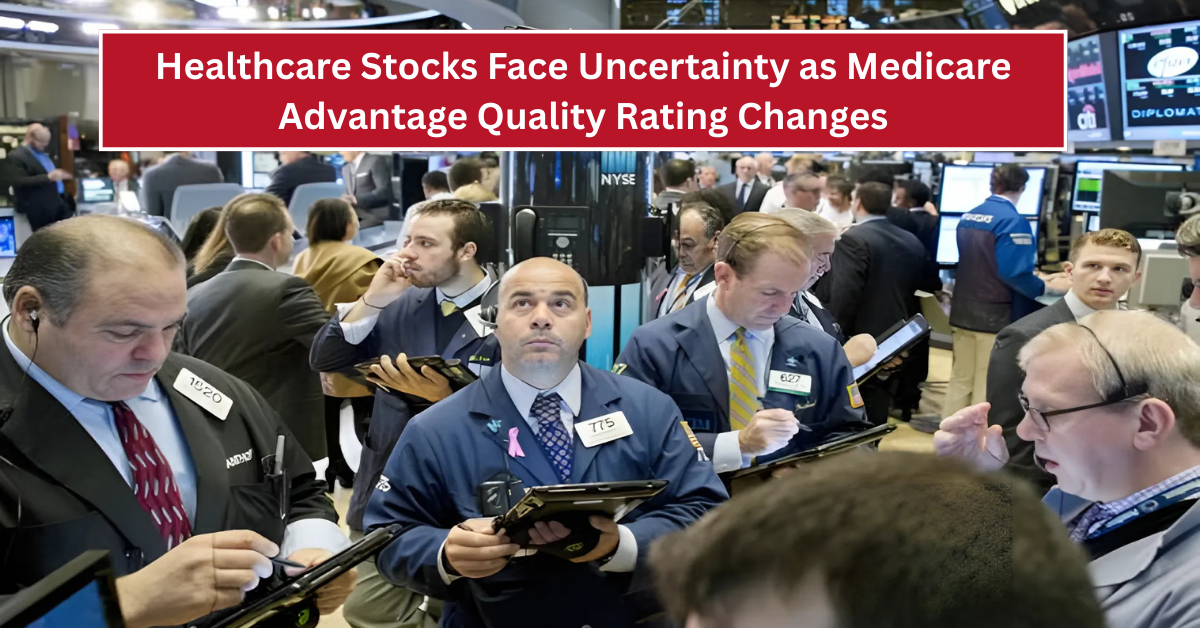The healthcare sector is experiencing volatility as investors react to upcoming changes in Medicare Advantage quality ratings for the 2026 plan year. These ratings affect how Medicare Advantage plans are evaluated and compensated, influencing the revenue of companies involved in providing healthcare services. For many, the new rating system introduces both opportunities and challenges that could reshape market performance.
Young investors and industry watchers alike should pay close attention to these developments. As policies evolve, understanding the impact on healthcare stocks can help in making informed decisions. This article explains the key details behind the Medicare Advantage rating changes and what they mean for the stock market.
What Are Medicare Advantage Quality Ratings?
Medicare Advantage plans are a popular choice for many seniors in the United States, offering health benefits through private insurers approved by Medicare. Each year, these plans receive quality ratings based on their performance in various areas like customer service, care management, and health outcomes. Ratings range from one to five stars, with higher stars indicating better care and services.
These ratings are critical because they directly affect how much money Medicare pays to these plans. Higher-rated plans receive bonus payments, which can be used to improve services or lower costs for beneficiaries. Therefore, the ratings system encourages insurers to maintain high standards of care and customer satisfaction.
Changes Coming in 2026 Medicare Advantage Ratings
Starting with the 2026 plan year, the Centers for Medicare & Medicaid Services (CMS) are introducing significant modifications to the Medicare Advantage quality rating methodology. The aim is to better reflect the actual quality of care and member experiences. For example, new measures will emphasize preventive care, chronic disease management, and social determinants of health.
Some industry experts believe these changes will make the ratings more accurate but also more challenging to achieve. Plans that currently enjoy high ratings may find it harder to maintain their scores, while others have the chance to improve by focusing on new performance areas.
Impact on Healthcare Stocks
Medicare Advantage providers and related healthcare companies are closely watching these changes because they can affect profits and investor confidence. Stocks of firms heavily involved in Medicare Advantage might see price shifts as analysts reassess their growth potential and risks under the new system.
For instance, companies with strong customer satisfaction and robust chronic disease programs are expected to benefit, while those lagging in key areas might face pressure on their earnings. This uncertainty leads to cautious trading and makes the healthcare sector more volatile than usual.
Why Should Younger Investors Care?
Although Medicare primarily serves older adults, younger investors should care about these changes for several reasons. First, the healthcare sector is a major part of the overall economy and investment markets. Changes affecting healthcare companies can ripple across other sectors.
Second, understanding how government policies influence the market is a valuable skill for any investor. Medicare Advantage rating changes are a clear example of how policy updates can create investment opportunities—and risks. Staying informed helps younger investors build smarter, long-term portfolios.
How to Stay Ahead in a Changing Healthcare Market
For anyone interested in healthcare stocks, keeping track of CMS announcements and industry reports is key. Following news about the 2026 Medicare Advantage rating changes will provide clues on which companies are adapting effectively. Investors should also watch earnings calls where company leaders discuss strategies for meeting new quality standards.
Besides research, diversification is important. Healthcare stocks can be risky when regulatory changes occur, so spreading investments across different sectors or stocks with stable fundamentals can reduce potential losses.
Conclusion: A Time of Challenge and Opportunity
The Medicare Advantage quality rating changes for 2026 bring both challenges and opportunities for healthcare companies and investors. While these changes may cause some short-term stock market fluctuations, they also push the healthcare industry toward better service and innovation. For younger investors, understanding these shifts is essential to making informed choices in a complex market.
By staying informed and cautious, investors can navigate the uncertainty and find companies that will thrive under new standards. This proactive approach can increase the chances of achieving steady growth while contributing to better healthcare outcomes.




